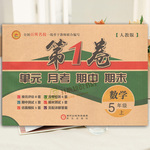题目内容
Learning Chinese has been like climbing a steep(陡峭的)mountain.
My mother was born in Tokyo,while my father moved from Shanghai to Hong Kong when he was seven years old. At home we speak English. I know some basic Chinese customs :to use chosticks gracefully (得体地)and what to say on Spring Festival to get a red envelope. But I never truly learned to speak Chinese.
Why should I need to learn the language ,anyway? I live in America where everyone speaks English.
I realized I was wrong in ninth grade when I arrived at Philips Academy,a famous boarding school in Massachusetts.The school encourages a global outlook(视野). There I decided to welcome the opportunity to learn Chinese. I met other American-born Chinese and together we spoke Ching-lish outside of the classroom.
I searched for ways to access Chinese culture through dramas such as Meteor Garden (《流星花园》)and music by singers such as S.H.E,Wilbur Pan and Jasmine Leung(梁静茹). Listening to Chinese music is where I found my favorite singer in the whole world:Jay Chou. Even if I cannot understand what he is crooning(哼唱), I do feel more Chinese whenever I listen to his music.
Last summer I spent five weeks in China,four of which were taking a language course at a Beijing high school. I was proud when I could understand the dialogue in Intitial D(《头文字D》) and when I could easily translate Fairy Tale sung by Kong Leung(光良).
Learning Chinese has been a rocky trek(艰苦跋涉), and I know it will continue to be that way before I arrive at a relative plateau(高地) of fluency(流利).I hope that one day I will be able to work and maybe even live in China as a true Chinese.
1.The author wrote the text mainly to___.
A.share her experience of learning Chinese
B.tell us why she is interested in learning Chinese
C.show off(炫耀) the progress she made in learning Chinese
D.give advice on how to learn Chinese
2.The author's attitude to learning Chinese changed because___.
A.she found Chinese was interesting to learn
B.she wanted to take a course to pass easily
C.she realized she should have an open mind to the outside world
D. she made friends with some American___born Chinese at the school she studied
3.The author tried all of the following to learn Chinese EXCEPT___.
A.listening to Chinese music
B.practicing speaking Chinese with her parents
C.enjoying Chinese dramas
D.taking a Chinese course in China
4.We can learn from the text that___.
A.S.H.E.is the author's favorite singer[来源:Zxxk.Com]
B.dialogues in Meteor Garden are easy to guess
C.the author enjoys learning Chinese though it is difficult
D.the author can speak fluent Chinese now
1.A
2.C
3.B
4.C
【解析】略

 期末1卷素质教育评估卷系列答案
期末1卷素质教育评估卷系列答案